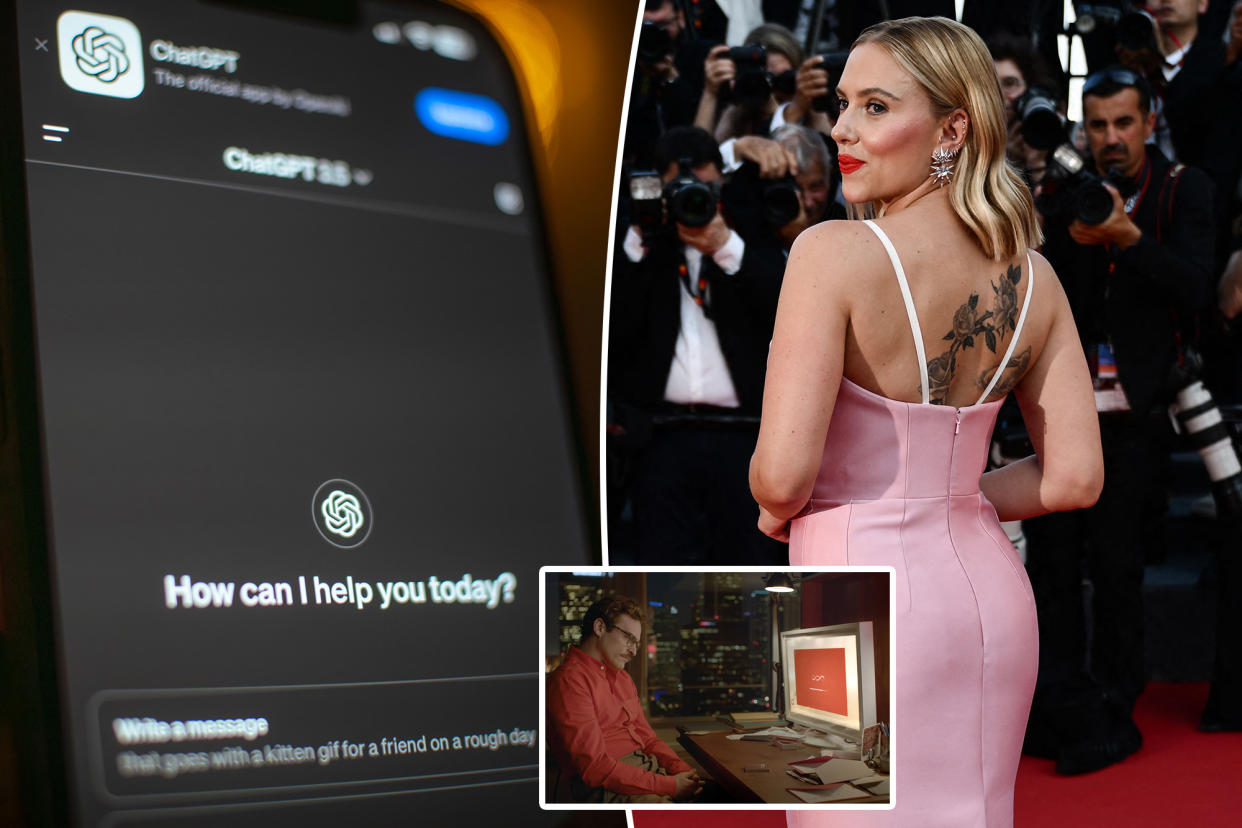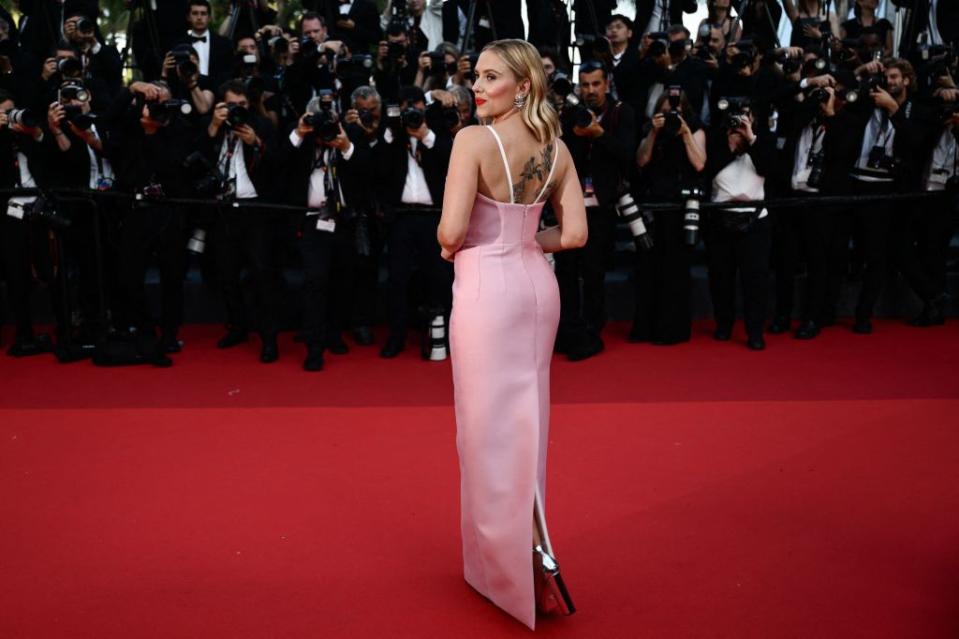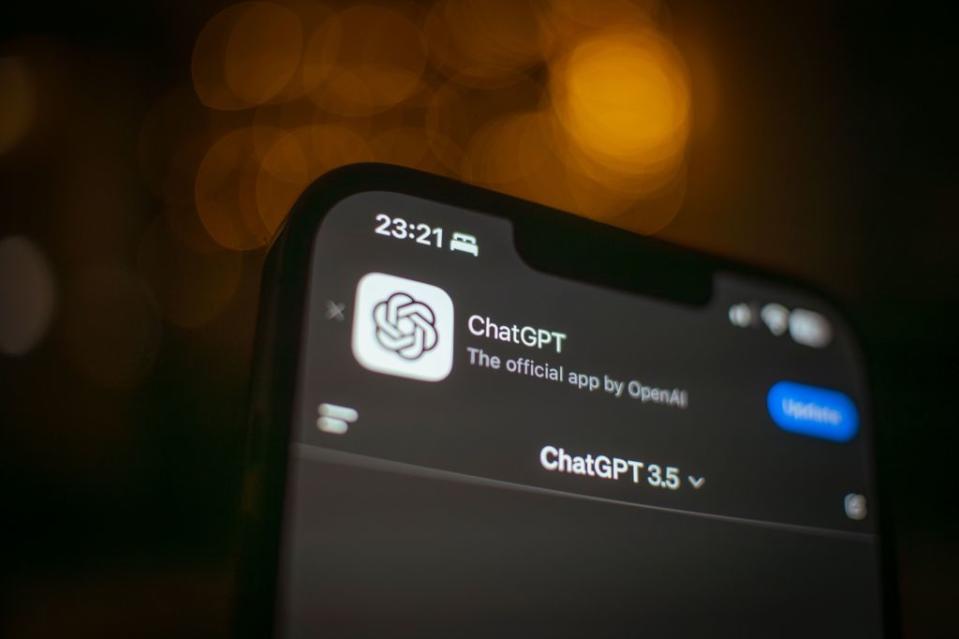OpenAI to pull ChatGPT voice that sounds like Scarlett Johansson character in film ‘Her’

OpenAI said that it plans to pull a speaking voice that sounds eerily similar to that of actress Scarlett Johansson from its ChatGPT service.
The maker of the popular AI-powered bot said that it made the decision to pause the use of the Sky voice from the audible version of ChatGPT after users compared it to Johansson’s performance as a fictional virtual assistant in the 2013 movie “Her,” which tells the story of a man falling in love with an AI system.
OpenAI added the voices of Sky and four others as part of its updated version of GPT-4o, which allows users to pose verbal questions and get an audio response.
“We believe that AI voices should not deliberately mimic a celebrity’s distinctive voice,” the company wrote in a blog post announcing the move over the weekend.

OpenAI said that Sky’s voice “is not an imitation of Scarlett Johansson” but is instead one that “belongs to a different professional actress using her own natural speaking voice.”
The company said it worked with casting directors and producers last year in search of voice actors who met certain criteria, including those from “diverse backgrounds.”
OpenAI said it was searching for a “voice that feels timeless” and “approachable” so as to “inspire trust.”
The casting call attracted 400 submissions which were eventually whittled down to 14 actors. In the next stage, OpenAI chose five of them to represent the voices of Breeze, Cove, Ember, Juniper and Sky.
The company then flew the five actors out to San Francisco and began a five-month long process which included recording sessions and in-person meetings, according to the blog post.
New audio capabilities featured in GPT-4o enable users to speak to ChatGPT and obtain real-time responses with no delay, as well as interrupt ChatGPT while it is speaking, both hallmarks of realistic conversations that AI voice assistants have found challenging.

“It feels like AI from the movies … Talking to a computer has never felt really natural for me; now it does,” OpenAI CEO Sam Altman wrote in a blog post.
OpenAI, which is backed by Microsoft, faces growing competition and pressure to expand the user base of ChatGPT, its popular chatbot product that wowed the world with its ability to produce human-like written content and top-notch software code.
At a livestream event last week, OpenAI researchers showed off ChatGPT’s new voice assistant capabilities.
In one demo, ChatGPT used its vision and voice capabilities to talk to a researcher through solving a math equation on a sheet of paper.
In another demo, researchers showed the GPT-4o model’s capability of real-time language translation.
OpenAI’s demonstrations verged on science-fiction, with ChatGPT and its interlocutor at one point engaging in coquettish banter.
The OpenAI researcher told the chatbot he was in a great mood because he was demonstrating “how useful and amazing you are.”

ChatGPT responded: “Oh stop it! You’re making me blush!”
OpenAI’s chief technology officer, Mira Murati, said at the event that the new model would be offered for free because it is more cost-effective than the company’s previous models.
Paid users of GPT-4o will have greater capacity limits than the company’s free users, she said. The GPT-4o model will be available in ChatGPT over the next few weeks, the company said.
In addition, free ChatGPT users now have access to a “browse” feature that enables ChatGPT to display up-to-date information from the web, Murati told Reuters after the event.
The company does not intend to make money off free users through selling ads, Murati said.

Shortly after launching in late 2022, ChatGPT was called the fastest application ever to reach 100 million monthly active users.
However, worldwide traffic to ChatGPT’s website has been on a roller-coaster ride in the past year and is only now returning to its May 2023 peak, according to analytics firm Similarweb.
Google last week showed how it is building on artificial intelligence across its businesses, including a beefed-up Gemini chatbot and improvements to its prized search engine as it races to compete with AI rivals.
Among Google’s latest salvos was an addition to its family of Gemini 1.5 AI models known as Flash that is faster and cheaper to run; a prototype called Project Astra, which can talk to users about anything captured on their smartphone camera in real time; and search results categorized under AI-generated headlines.
With Post wires
